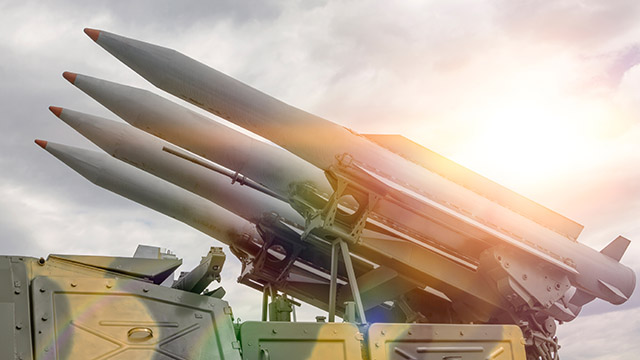Among the urgent priorities for President-elect Joe Biden was the renewal of the New Strategic Arms Reduction Treaty (New START), the last arms control treaty between the U.S. and Russia. New START, which includes caps on strategic nuclear arms, was extended for another five years on Feb. 3.
New START, however, is not the only nuclear arms treaty on the table. The United Nations’ treaty on the prohibition of nuclear weapons went into force on Jan. 22. Unlike previous treaties that addressed non-proliferation by reducing the number of these weapons, this new treaty will make it a violation of international law to use nuclear weapons, as well as threaten to use, test, develop, produce, possess, transfer, and/or station them in a different country. To date, nine countries — the U.S., Britain, Russia, France, China, India, Pakistan, Israel, and North Korea — have nuclear weapons and many more such as Japan and the NATO countries are protected by the so-called nuclear umbrella. What steps might nuclear weapons countries, and nuclear umbrella countries, take towards compliance, short of eliminating nuclear arsenals entirely?
As the new Biden administration and governments around the world weigh whether and how to support the UN ban on nuclear weapons, support for the new international law can come from an unlikely place: central banks. By refusing to buy or hold securities from companies that make nuclear weapons — Boeing, Lockheed Martin, Babcock International, Safran, and Rolls Royce, among others — central bankers around the world would acknowledge the validity of the new international law, which requires nations to commit not to “assist, encourage, or induce in any way” the development or testing of nuclear weapons.
By committing to comply with this new international law as they manage their investment portfolios, central banks would provide important support as the major nuclear powers continue to defend their arsenals. In addition, central banks’ actions would set another standard in socially responsible quantitative easing, which has exploded in 2020.
Detractors to this argument will point out that central bank mandates do not include social, diplomatic or environmental agendas; for example, the only mandates for the Federal Reserve are to promote maximum employment while keeping inflation low. Nonetheless, as the Federal Reserve and other central banks manage portfolios that have swelled into the trillions of dollars — making them, arguably, the largest public investor group — these bankers have the authority and responsibility to set their own investment standards. The Federal Reserve, in particular, has just joined a network of financial regulators focused on preparing the global financial system for climate change and risk.
Some may also argue that for central banks to take a position on nuclear weapons would jeopardize their political independence. Yet, in their historic roles as lenders of last resort, central banks have both financed wars and supported peace-building. The European Central Bank and the creation of the euro were integral in unifying the interests of European countries, knitting them together so as to deter the chance of them waging war against each other.
When the international nuclear weapons ban treaty goes into force early next year, the U.S. will have to weigh how it will respond to it. Washington has a long-standing, but narrowly defined doctrine that, when a direct and explicit conflict exists between international law and its domestic laws, the U.S. follows its own statutes; but when possible, the U.S. will interpret its domestic law so that it is in compliance with international law. This creates an opportunity for the Federal Reserve to align its asset purchases with international law in the absence of direct guidance from Congress to the contrary. The international nuclear ban is another invitation for central bankers around the world to consider their role in building peace. Agreeing to uphold the international ban on nuclear weapons in their investment practices would be a highly visible and critical step.
This piece was first published Jan. 22, 2021, on Medium.

